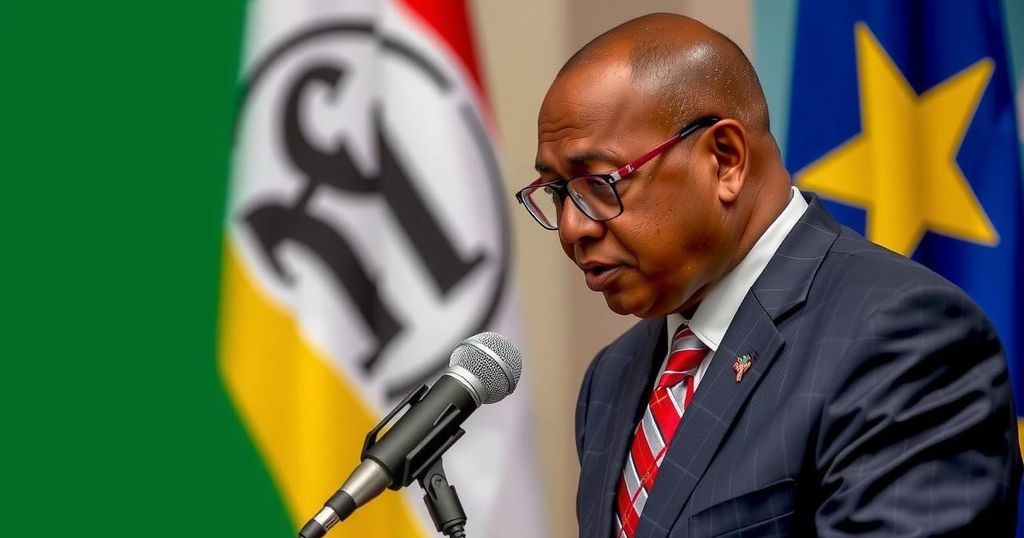South Sudan’s President Salva Kiir affirmed the commitment to the Tumaini peace negotiations, clarifying they will not replace the existing Revitalized Peace Agreement. He emphasized inclusivity and called for preparations for the upcoming 2026 elections. A United Nations representative lamented the delayed elections due to lack of progress on deliverables, urging for a collaborative response to ongoing humanitarian needs affecting millions.
In a recent address at the 8th Annual Governor’s Forum in Juba, South Sudan’s President Salva Kiir Mayardit reaffirmed his commitment to expedite and finalize the Tumaini peace negotiations with hold-out groups in Nairobi, Kenya. President Kiir clarified that these discussions are not intended to undermine or replace the existing Revitalized Peace Agreement established in 2018. He emphasized, “Our collective vision, we the signatories to the 2018 peace agreement, is to bridge the gap, to understand the reservations of the hold-out groups, accommodate these reservations within the existing agreement, so that the Tumaini Initiative becomes part of the existing agreement.”
During the forum, the President underscored the risks associated with attempting to create a new agreement, warning that it would undermine the inclusivity principle, potentially reigniting conflict. Additionally, he mentioned a restructuring of the government delegation to accelerate the negotiation process. The Special Representative of the Secretary-General of the United Nations, Nicholas Haysom, expressed disappointment over the extension of the transitional period by two years and the subsequent delay in elections but acknowledged it as necessary due to insufficient progress on key deliverables of the peace agreement. Haysom urged all parties to develop a coherent work plan for the upcoming two years, noting the populace’s desire for peace and stability.
President Kiir also encouraged all political contenders to prepare for the scheduled elections in December 2026, remarking, “I remind all those who are interested to contest in the election that 24 months is not a big thing. If you are not prepared, you better start preparing yourselves.” This call to action highlights the urgency for political engagement and the consolidation of peace efforts moving forward.
The humanitarian crisis in South Sudan continues to escalate, with reports indicating that approximately nine million individuals require aid, and nearly 7.5 million endure food insecurity. Amid these challenges, the Deputy Special Representative of the Secretary-General and Resident Coordinator, Anita Kiki Gbeho, called on state leaders to facilitate unobstructed access for humanitarian organizations, voicing concerns over barriers to aid delivery. These developments underscore the critical need for cooperation amongst national and state leaders to make meaningful progress towards democratic governance and stability.
The Tumaini peace negotiations are part of South Sudan’s ongoing efforts to integrate hold-out groups and finalize peace efforts following years of conflict. The 2018 Revitalized Peace Agreement aimed to restore stability in the country, but the enduring divisions and insecurity necessitated these new talks to ensure inclusivity and address grievances. The Governor’s Forum serves as a critical platform for dialogue among state and national leaders, aimed at fostering collaboration and addressing pressing challenges, including humanitarian crises affecting millions.
President Salva Kiir’s reaffirmation of commitment to the Tumaini peace talks is a crucial step towards addressing the grievances of hold-out groups without undermining existing agreements. The call for unified efforts to secure humanitarian access and prepare politically for upcoming elections reflects the administration’s focus on stabilizing the nation. However, success hinges on all parties involved honoring their commitments and ensuring the effective implementation of peace initiatives amidst ongoing humanitarian challenges.
Original Source: www.socialnews.xyz






